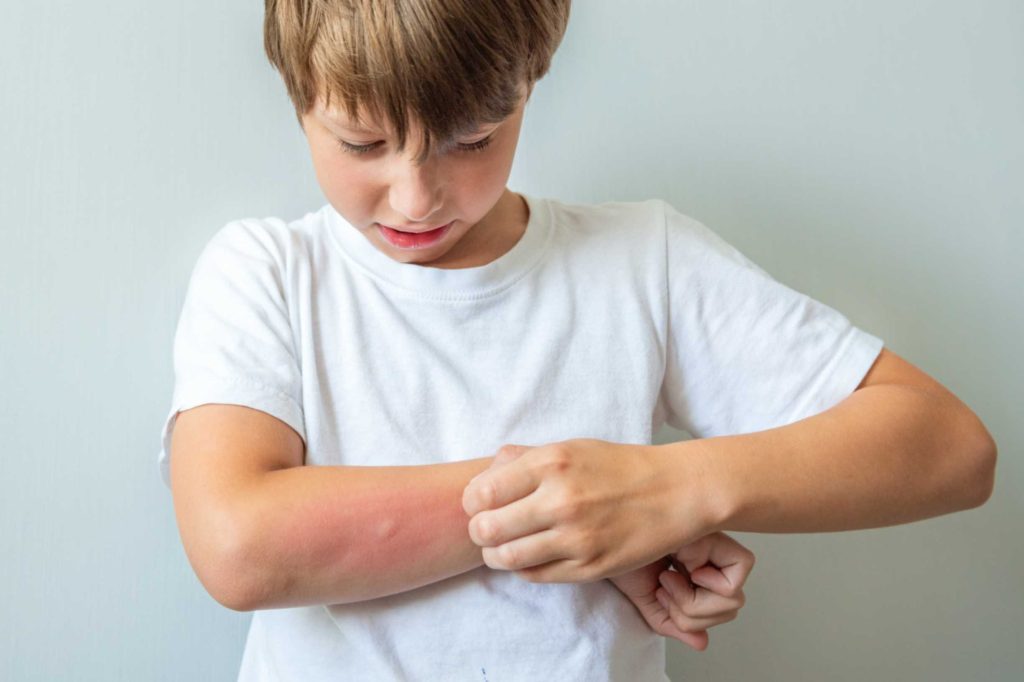
Most insect bites are nothing more than a temporary nuisance. A little redness, itching or swelling is quite normal. However, sometimes what starts as a harmless bite can turn into something more serious. Knowing when to worry and how to treat infected insect bites can help you avoid complications.
Let’s break it down simply.
What’s Normal After an Insect Bite?
Right after a bite or sting, it’s completely natural for the skin to react. You might notice:
- Mild redness or swelling
- Itching or irritation
- A small raised bump
These symptoms usually calm down in a few hours or a couple of days with basic care. You can ease the discomfort with cold compresses, over-the-counter creams or antihistamines.
But how do you know if it’s more than just a regular bite?
Signs of an Infected Bug Bite
Sometimes, bacteria enter the skin through the bite, especially if it’s scratched. This is where things start to go wrong. Here are common signs of infected bug bites you should never ignore:
- Increased redness and swelling that worsens after a day or two.
- The area feels hot to the touch.
- Pus or fluid oozing out of the bite.
- Red streaks spread from the bite.
- Fever or feeling unwell.
If the area is not just itchy but painful and inflamed, or the swelling continues to grow, it’s likely more than just a typical reaction.
Insect Bite Redness and Swelling: When Is It a Problem?
It’s easy to dismiss redness and swelling as normal, but timing matters. If swelling gets worse after 48 hours or spreads significantly beyond the bite area, it’s a cause for concern. The same applies to redness that deepens in colour or is warm and throbbing.
Don’t wait too long if the bite appears to be getting worse instead of better.
Infected Insect Bite Treatment: What Can You Do?
Here’s how to treat infected insect bites safely and prevent complications:
1. Clean the Area
Wash the bite with soap and clean water. Pat it dry and avoid using any harsh chemicals or scented creams.
2. Avoid Scratching
Scratching introduces more bacteria and worsens the infection. Keep nails short and clean, and use a cold cloth to reduce itching.
3. Apply an Antiseptic or Antibiotic Cream
Use an antiseptic or over-the-counter antibiotic cream recommended by our pharmacists to stop the infection from spreading.
4. Take Pain Relief if Needed
Paracetamol or ibuprofen can help manage pain or fever associated with the infected bite. Follow the dose instructions on the packaging.
5. Cover the Area
If the bite is open or leaking fluid, use a clean dressing or plaster to protect it from further bacteria.
6. Watch for Worsening Symptoms
If things don’t improve in 2 to 3 days or get worse, don’t delay seeking help.
Common Bites That Can Lead to Infection
Certain insects are more likely to cause trouble:
- Mosquito bites scratched open often get infected.
- Horsefly bites can be painful and more prone to swelling.
- Spider bites in the UK are usually harmless but can get infected if not cared for properly.
- Flea bites are itchy and cluster around ankles or legs and may become infected if scratched a lot.
Infection doesn’t depend on the type of insect alone but on how your skin reacts and whether the bite breaks the skin barrier.
Prevention Tips to Avoid Insect Bite Infection
- Use insect repellent when outdoors.
- Wear long sleeves and trousers in high-risk areas.
- Keep your environment clean and free from standing water.
- Treat bites early and avoid scratching.
Feel Safe with Help Close to Home
Need help managing a bite that just won’t settle down? Our team can help you choose the right products for insect bite treatment, ease swelling, and prevent infection from spreading. Stop the itch before it becomes a problem. If you live around Slough, Stoke Poges or East Burnham, book a consultation at Aroga Pharmacy in Farnham Common today.
